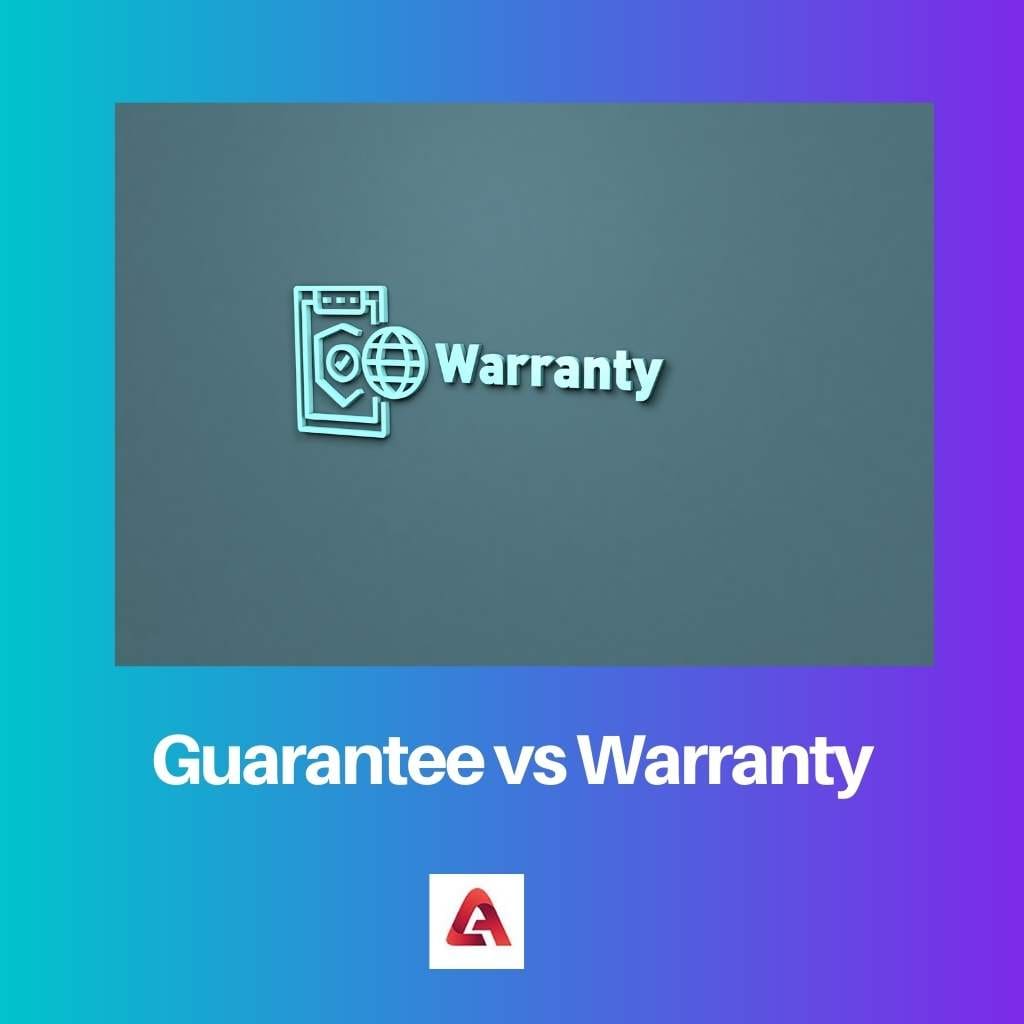While purchasing any high-level commodity, you would have come across the terms of guarantee and warranty. While the two of them are misconstrued as one, there are significant differences.
A guarantee is an assured promise to the customer by the manufacturer or seller, while a warranty is a written assurance backed up by the specifications of the product.
Key Takeaways
- A guarantee is a broad assurance of product quality or performance, whereas a warranty is a specific, legally binding agreement detailing coverage and terms.
- Guarantees tend to be short-term commitments, while warranties can last for extended periods, depending on the product and manufacturer.
- Warranties require registration and proof of purchase for coverage, while guarantees may not necessitate such documentation.
Guarantee vs Warranty
A guarantee is a promise made by a company or seller to a customer that their product or service will meet certain standards or perform in a certain way. A warranty is a contractual agreement between the manufacturer or seller and the customer that the product will meet certain standards and will be free from defects.

A guarantee is an oral or, in some cases, a written statement implying that the article that is the subject of the contract is well constructed. It is well equipped to be able to deliver the best performance. The user does not have to make an additional payment to avail of a guarantee.
A warranty is a written commitment that states that in case the equipment or object in question does not work to its maximum potential, it will be open to repair or, in some cases, a complete replacement. The buyer may have to pay an additional sum of money to avail of a warranty.
Comparison Table
| Parameters of Comparison | Guarantee | Warranty |
|---|---|---|
| Definition | A promise to the customer that the product will be replaced or repaired if need be. | A commitment to the quality of the product that states that the product will not cause before a specific time period. |
| Form | It can either be verbal or oral. | A warrant is in the written form. |
| Inclusivity | A guarantee is inclusive of products and services. | A warranty is inclusive of only the product. |
| Term | Guarantee varies from product to product. | A warranty is long-term. |
| Money back | Money-back is possible in the case of a guarantee. | Money-back is not possible in the case of a warranty. |
What is Guarantee?
A guarantee is a communicated offer that suggests that the article in question would work to its specified potential for as long as the time suggests.
However, a guarantee does not mean that the said object is open to repairs or replacement in case the performance is not satisfactory. Whether or not the guarantee can be trusted can be decided depending on the popularity and the generic review of the object.
If the experiences have been satisfactory, the guarantee is most likely genuine. If not, you will most likely lose money.
A guarantee is believed to be more trustable. This is to say when an object comes with a guarantee, people are more inclined towards investing in it. A guarantee is a promise that comes with certainty.
However, if the guarantee fails, you cannot accuse the manufacturer or the seller. A guarantee is intuitive, and it is up to you if or not you want to believe it.
The term guarantee is also used when buying a house through a loan. You might sign off your car as a guarantee. This is to say that if you fail to repay the house loan, then your car will be taken by the company. In this case, your car is the guarantee for your house.

What is Warranty?
A warranty is a written statement about the promised quality of the product. A warranty states that the given piece item would not be problematic before a stipulated time.
A warranty states the terms and conditions under which the product may be replaced or repaired. The buyer must pay a fee or provide some kind of compensation to avail the advantages of a warranty.
There is a time limit for a warranty. For example, the warrant on household items is for one year. This is to say that if a household appliance malfunctions within one year of purchase, the buyers shall provide compensation in the form of a repair or replacement.
There are mainly two kinds of warranty- implied and express. An express warranty is a commitment from the manufacturer to the buyer that the article or appliance in question shall work to its maximum capacity as stated in its description and qualities.
An extended warranty is beyond the reach of the manufacturer. It is better described as a contract between the buyer and the seller, and thus the buyer accommodates the replacing or repairing costs. Extended warranties are applicable on high price equipment like cars and electrical appliances.

Main Differences Between Guarantee and Warranty
- A guarantee is a promise that an object will stand true to its specifications. A warranty says that if it does not, it will be replaced or repaired.
- For more essential and costly items, a warranty is an integral part of the sale. A guarantee may or may not make the cut.
- A warranty is more trustworthy since it includes compensation. A guarantee is intuitive and may not suffice your requirements.
- A guarantee is a term of the agreement between the manufacturer or seller and the buyer, while a warranty is a term of the agreement between the manufacturer and the middle person of the goods.
- A guarantee covers product satisfaction only. A warranty covers product satisfaction along with adequate after-service.

- https://heinonline.org/hol-cgi-bin/get_pdf.cgi?handle=hein.journals/ylr90§ion=66
- https://www.sciencedirect.com/science/article/pii/S0925527302001536